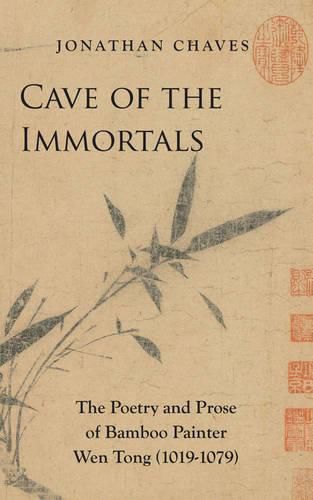Readings Newsletter
Become a Readings Member to make your shopping experience even easier.
Sign in or sign up for free!
You’re not far away from qualifying for FREE standard shipping within Australia
You’ve qualified for FREE standard shipping within Australia
The cart is loading…






Wen Tong (1019-1079) is considered the supreme master of bamboo painting in the history of Chinese art. According to his friend and admirer, Su Shi (Dongpo), the greatest poet of the Song Dynasty (960-1279), When Wen Tong painted bamboo, he himself became bamboo! Wen was a poet as well, and perhaps because of his fame as a painter, his poetry has remained virtually unknown for centuries. This book is the first in any Western language to present translations of selected poems by Wen, over three hundred of them, as well as examples of his prose writings, which are also fascinating. A particular revelation is Wen’s unusual degree of interest in what might be called the Folk Religion of China, for example, ceremonies of supplication to various gods, especially Dragon deities, to send rain in time of drought. Wen’s poems and prose pieces also bring to light aspects of Buddhism, Daoism, and Confucianism that are of great importance in Chinese civilization, but rarely addressed in the literature of the Chinese poets as they involve devotional practices held in suspicion by many of the literati, but seen by Wen Tong in a positive light.
$9.00 standard shipping within Australia
FREE standard shipping within Australia for orders over $100.00
Express & International shipping calculated at checkout
Wen Tong (1019-1079) is considered the supreme master of bamboo painting in the history of Chinese art. According to his friend and admirer, Su Shi (Dongpo), the greatest poet of the Song Dynasty (960-1279), When Wen Tong painted bamboo, he himself became bamboo! Wen was a poet as well, and perhaps because of his fame as a painter, his poetry has remained virtually unknown for centuries. This book is the first in any Western language to present translations of selected poems by Wen, over three hundred of them, as well as examples of his prose writings, which are also fascinating. A particular revelation is Wen’s unusual degree of interest in what might be called the Folk Religion of China, for example, ceremonies of supplication to various gods, especially Dragon deities, to send rain in time of drought. Wen’s poems and prose pieces also bring to light aspects of Buddhism, Daoism, and Confucianism that are of great importance in Chinese civilization, but rarely addressed in the literature of the Chinese poets as they involve devotional practices held in suspicion by many of the literati, but seen by Wen Tong in a positive light.